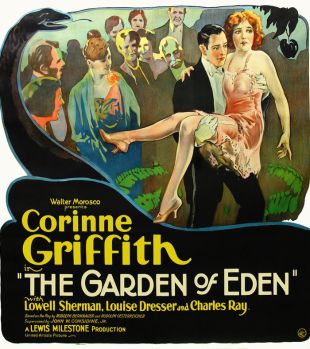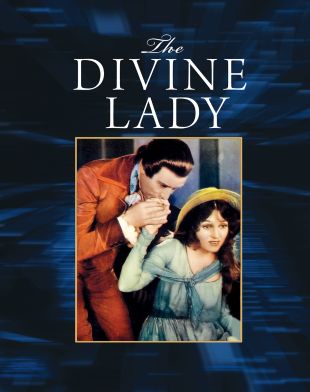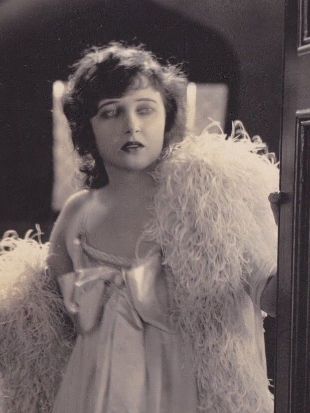The Orchid Lady of the silent screen, Corinne Griffith (born Griffin) became a star with First National in the 1920s, her films more noted for their protagonist's much lauded beauty than any dramatic claims. Her later court testimony to the contrary, the former dancer had made her screen debut with Vitagraph as far back as 1915, when she was considered a replacement for the defecting Anita Stewart. Top stardom, however, eluded her until signing with First National in 1924. Tagged The Orchid Lady of the Screen, Griffith played a series of beautiful yet suffering women in dramas whose focal points became the star's ever-changing wardrobe. She made up for a lack of thespian talent by sheer beauty, however, much like the later Billie Dove and Hedy Lamarr. As a personality rather than an actress, Griffith was ill-equipped to tackle talkies, and is considered one of the more notorious casualties of sound.
The studio did everything they could for her, however, and the expensively mounted The Divine Lady (1929), a silent with talkie sequences, for which she earned an Academy Award nomination for playing Lady Hamilton, was vastly popular and so was Saturday's Children (1939), from Maxwell Anderson's stage hit. Griffith's voice, unfortunately, was not distinct and she retired in 1932, after a notorious string of flops. A wealthy woman due to shrewd real-estate investments, the outspoken, politically conservative Griffith proved a fine author, whose childhood memoirs were turned into Papa's Delicate Condition, a pleasantly nostalgic family comedy that featured the Academy Award-winning song "Call Me Irresponsible."
Despite her literary triumphs, Griffith remained a controversial figure and never more so than during the divorce proceedings from one of her four husbands. On the witness stand, Griffith issued the startling claim that she wasn't the real Corinne Griffith at all, but her much -- MUCH! -- younger sister and stand-in, the original silent star having died years before. A parade of former coworkers, including actress Lois Wilson, then took the stand, all testifying that the plaintiff was unmistakably the one and only Corinne Griffith.
Earning a bit of renewed notoriety when her memoirs were sold to Paramount, Griffith herself returned to the screen briefly in 1957, when she accepted a supporting role in something called Stars in the Back Yard, a cheap Hugo Haas production about former film actors making their own home movie. Retitled Paradise Alley, the film was finally released to stony silence in 1961.


